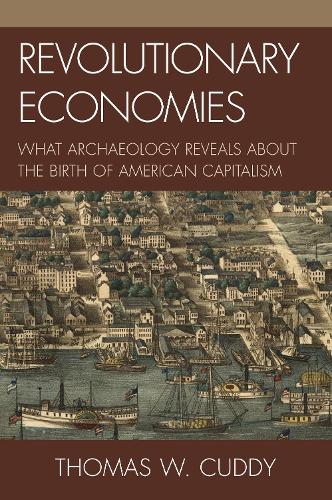
Revolutionary Economies: What Archaeology Reveals about the Birth of American Capitalism
(Paperback)
Publishing Details
Revolutionary Economies: What Archaeology Reveals about the Birth of American Capitalism
By (Author) Thomas W. Cuddy
AltaMira Press
AltaMira Press
11th September 2008
United States
Classifications
General
Non Fiction
History of the Americas
975.51803
Physical Properties
Paperback
166
Width 156mm, Height 231mm, Spine 18mm
277g
Description
Revolutionary Economies explores the roots of American capitalism through the archaeology and history of the Chesapeake Bay region. Thomas W. Cuddy looks at the archaeological evidence concerning revolutionary-period bakeries and bakers (some of whom had been students of Adam Smith in Scotland) in Annapolis, Maryland and Alexandria, Virginia to examine the development of local production systems that characterized these important early American urban centers. Revolutionary Economies charts the stages of production from household manufacturing to larger workshops to mechanized factories and opens a window on the country's economic history. The volume's blend of archaeology, history, and economics makes it a prototypical study in historical archaeology.
Reviews
Well written and easy to read, this book shows how early trades and small American industries were capitalized, a topic unexplored by historical archaeologists. Thomas Cuddy has written an interesting and intellectually viable supplementary text for undergraduates. -- Mark P. Leone, University of Maryland, College Park
Author Bio
Thomas W. Cuddy is senior associate at ICF International. He has previously held the position of Curator of Archaeology at the Historic Annapolis Foundation/University of Maryland.
